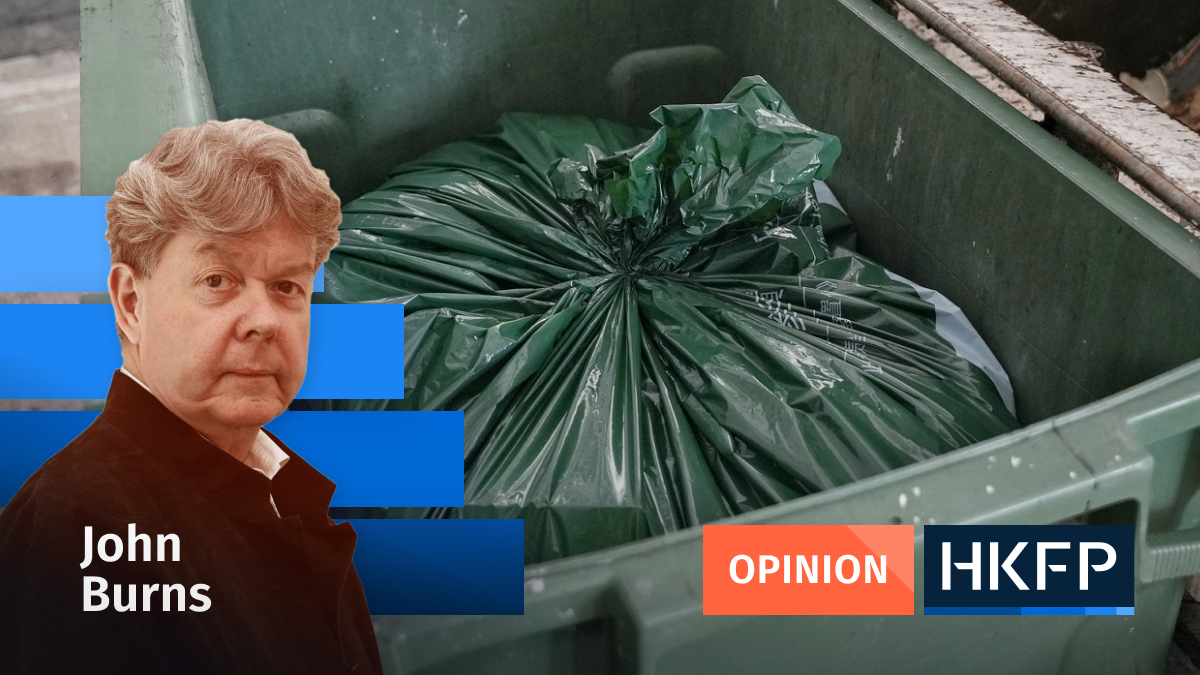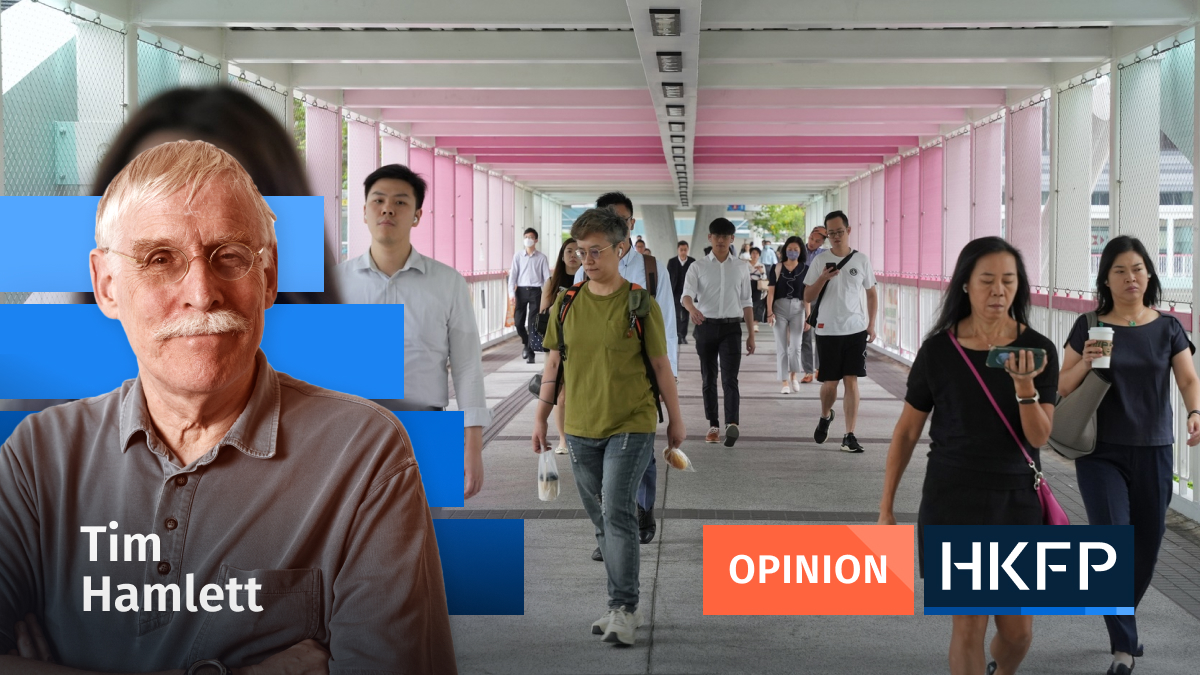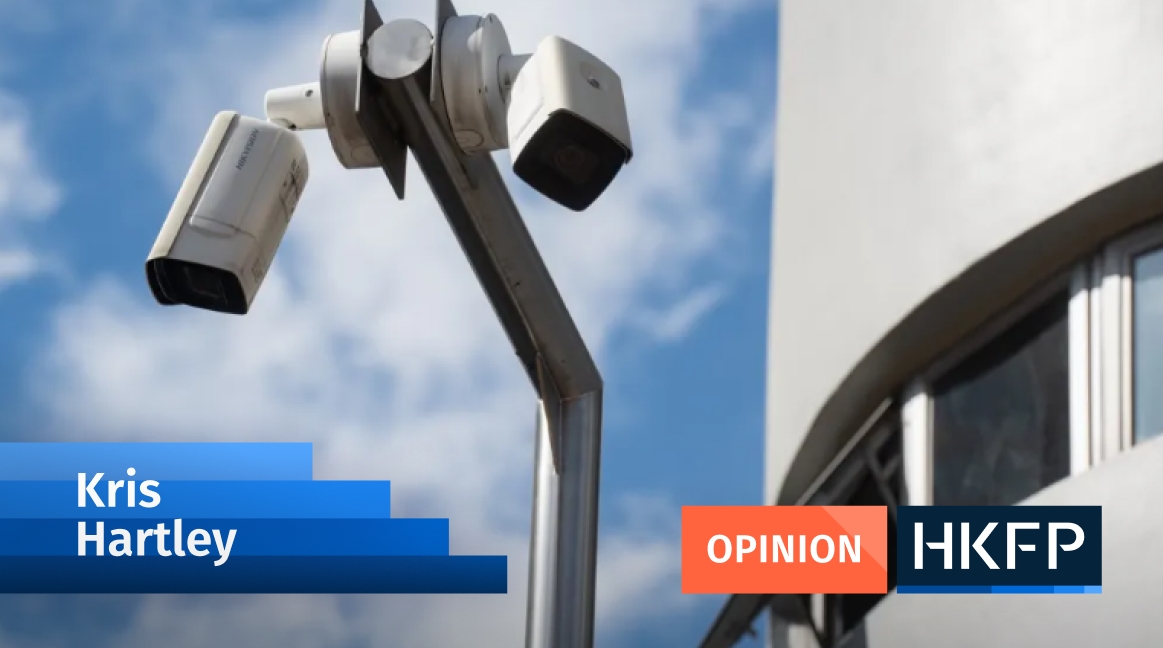Article 27 of the Basic Law of the Hong Kong SAR states that: “Hong Kong residents shall have freedom of speech, of the press and of publication; freedom of association, of assembly, of procession and of demonstration; and the right and freedom to form and join trade unions, and to strike.”
Some of these freedoms have been looking a bit battered of late. They are of course all subject to some restrictions in various circumstances, and the right to stage processions and demonstrate has for some years effectively been suspended in the interests of combating Covid.
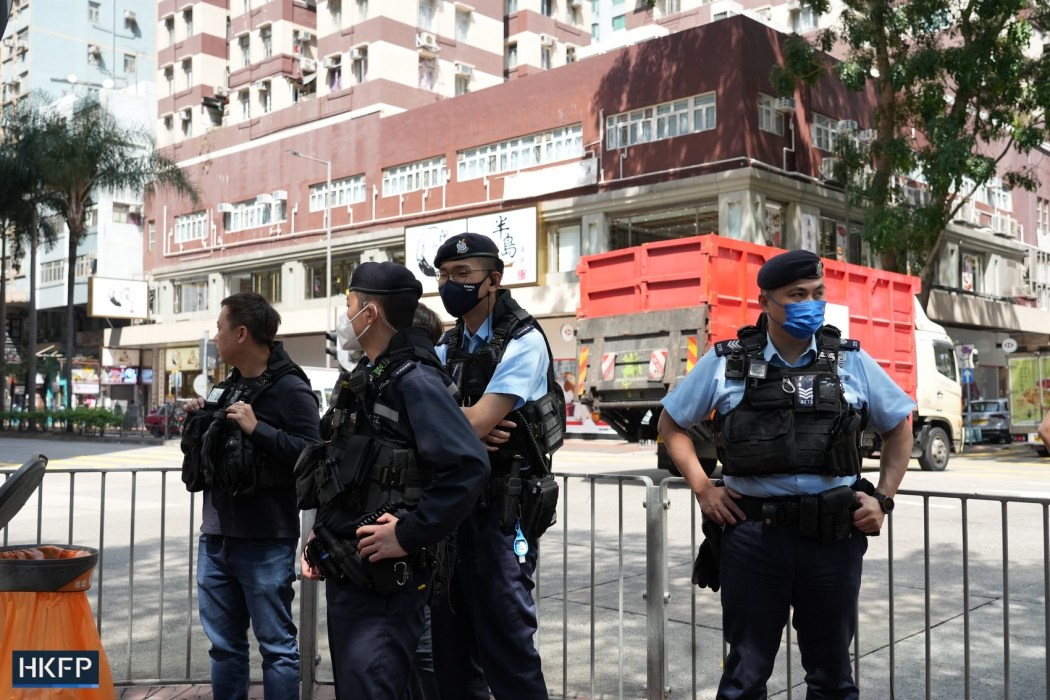
Some suspicious observers will have detected symptoms of a limited affection for this particular freedom in the fact that the government’s endless tinkering with its Covid precautions had one resounding exception: the limit of four people on outdoor gatherings.
This looked a bit suspicious when the limits on indoor gatherings reached three digits. But no doubt it helped to keep us all healthy.
However this excuse – I beg your pardon, requirement – is no longer relevant. So the question which now arises is whether the “freedom of assembly, of procession and of demonstration” will now come back to life or whether during the pause for the plague years it was quietly euthanised.
So far the diagnosis does not look good. The pioneering effort earlier this month was a march to be organised by the Hong Kong Women Workers Association, on the Sunday before International Women’s Day, which inconveniently fell on a Wednesday.
The rights of women workers are not a hot-button political issue in Hong Kong. Perhaps they should be. Nothing overtly subversive or rebellious was in the offing.
As various non-political events – New Year celebrations, fundraising walks and suchlike – had been approved without problems the women workers had reason to hope that their march would get the green light, and so it did. On the Thursday before, after what the police described as an “assessment,” the required letter of no objection was duly issued.
Then on Saturday, the eve of the planned march, the women workers called it off. The announcement was made on their Facebook page and offered no explanation.

We were however treated to a police press conference, the main purpose of which appeared to be to warn anyone who might still have itchy feet that as the march had now been officially cancelled they would be participating in an illegal gathering.
The police orator, acting Senior Superintendent Cheng Wai-kin, offered the explanation that the “association had decided to cancel the event after considering the interests of all parties,” which does not help us very much. He also said that they had heard that “many people” were planning to attend the event, including some “violent groups.”
Alas, we were not told who the violent groups were. One supposes that local triads would not be interested in demonstrating for women’s rights. I presume also that Mr Cheng was not referring to the chemical warfare department of his own Force.
It appears also that he was not referring to the League of Social Democrats, of which four members including the current chairman had been told on Friday – when the march was still legal – that they would be arrested immediately if they turned up.
Some hint as to what put the organisers off can be gleaned from the letter permitting the march, which according to HKFP included:
According to the conditions set out by the police, the association would have to ensure that the demonstration would be in compliance with laws including the Beijing-imposed national security law. The organiser also had to ensure that the protest and rally “would not be contrary to the interests of national security,” according to the police document.
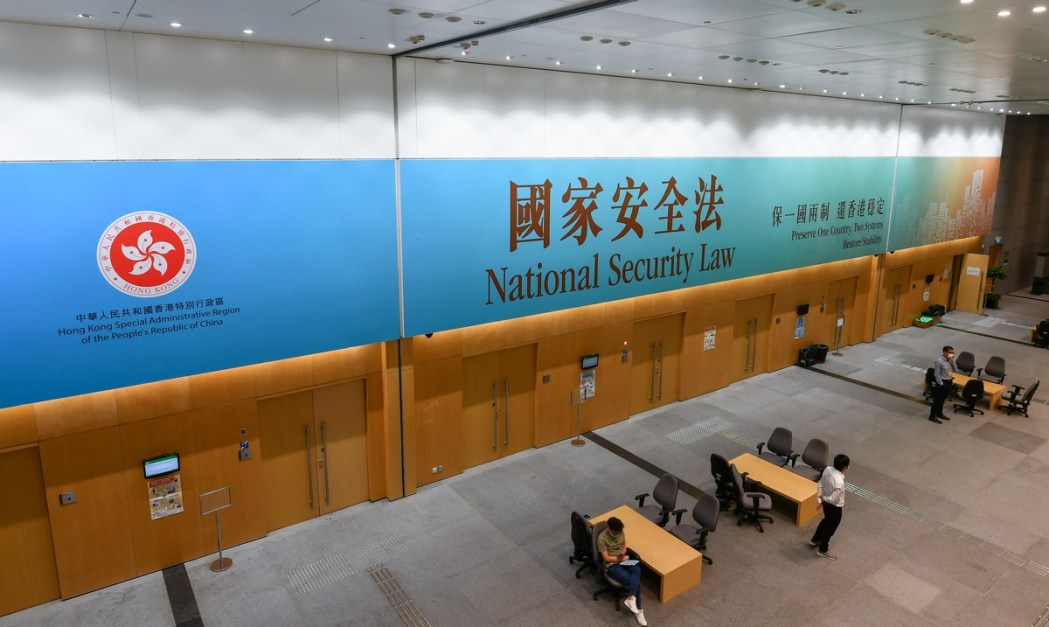
This was a theme also taken up by our Chief Executive John Lee in an interview quoted by Radio Free Asia:
Hong Kong Chief Executive and former police chief John Lee said the organizers of public events have a legal responsibility to ensure it doesn’t break the law. “Anyone who is not confident, is incompetent, or is worried about whether they can do this should not organize public activities, because they have to bear the legal responsibility,” he warned.
What are we to make of all this?
Firstly, it seems to me a flagrant abuse of police power to threaten specific individuals with instant arrest if they seek to exercise a freedom which the law confers upon us all. Members of political parties which the government or the police dislike have the same rights as the rest of us as long as they conform to the relevant law.
Secondly, I do not believe that China’s national security is so fragile that it needs to come up whenever a political gathering is in the offing. All fish can swim, but not all animals that swim are fishes. Similarly we may hope that all acts which endanger national security are illegal under the national security law; it does not follow that all acts which can be regarded as illegal under that law do actually threaten China’s national security.
What are we afraid of here? Will people wave five fingers, chant “Hong Kong, add oil”, hum the tune of Glory to Hong Kong? Would the state’s foundations crumble if somebody raised a yellow umbrella?
Thirdly it seems to me that, with all due respect to the Chief Executive’s extensive experience in extending the law to areas it did not previously reach, it is quite wrong in law to imply that the organisers of a march or protest are responsible for everything which happens while it is in progress.

The job of the organisers is to comply with all reasonably imposed conditions and encourage fellow marchers to do the same. The march should start where it is supposed to start, follow the approved route and finish at the previously agreed time and place, so far as that is within the organisers’ power. If large numbers of people are expected the organisers may be required to arrange marshals to ensure that participants know where they are supposed to go.
But at an event where anyone is free to turn up, it is neither a practical possibility nor a legal requirement that the organisers should control the activities and expressions of other participants. Keeping order on the streets during a protest is the job of … wait for it … the police! Just as it is the rest of the time.
Making organisers responsible for everything anyone does will simply make marches and processions impossible. Quite apart from the activities of over-zealous supporters, organisers will be vulnerable to deliberate attempts by opponents to sabotage the proceedings.
It would be deplorable if citizens were deterred from exercising their rights by legally imaginative bullying from the parts of the government which should be protecting our freedoms. We shall see.
Support HKFP | Policies & Ethics | Error/typo? | Contact Us | Newsletter | Transparency & Annual Report | Apps
| HKFP is an impartial platform & does not necessarily share the views of opinion writers or advertisers. HKFP presents a diversity of views & regularly invites figures across the political spectrum to write for us. Press freedom is guaranteed under the Basic Law, security law, Bill of Rights and Chinese constitution. Opinion pieces aim to point out errors or defects in the government, law or policies, or aim to suggest ideas or alterations via legal means without an intention of hatred, discontent or hostility against the authorities or other communities. |
Help safeguard press freedom & keep HKFP free for all readers by supporting our team

More HKFP OPINION:
HKFP has an impartial stance, transparent funding, and balanced coverage guided by an Ethics Code and Corrections Policy.
Support press freedom & help us surpass 1,000 monthly Patrons: 100% independent, governed by an ethics code & not-for-profit.




